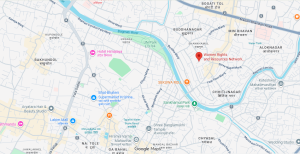
The program was organized for the discussion about key issues that were raised during the previous dialogue programs. The discussion program focused on key discussions that were arose from the previous dialogue programs to ensure whether they are included in the draft Bagmati Province Forest Act which was under the process of amendment. The program was started by discussing key highlights of the previous dialogue program. The key highlights are listed below:
During the first consultation program with province representatives along with local level stakeholders, Dr. Sindhu Dhungana presented the findings of a comprehensive gap analysis, emphasizing the urgent need to align the Bagmati Province Forest Act with the Federal Forest Act (2019), the National Forest Policy (2019), and international commitments such as CBD and CITES. The presentation underscored a necessary shift in forest policy from a purely conservation-driven model to one that embraces sustainable, production-oriented approaches. This includes incorporating eco-tourism, enterprise development, carbon trading, and strengthening community rights to ensure inclusive and effective forest governance.
During the second event of dialogue program with ministry representatives, stakeholders raised critical concerns throughout the discussions. Marginalized groups, including Indigenous Peoples and Local Communities (IPLCs), Dalits, women, and traditional occupational groups, highlighted limited recognition of their rights over forest resources. There was strong advocacy for provisions protecting traditional livelihoods, specifically those of yak herders, potters, Chiuri cultivators, and Dalits dependent on certain species. Women’s participation was another major focus, with recommendations to ensure at least 50% representation in Community Forest User Groups (CFUGs), including meaningful roles in key executive positions. Support for local enterprise development and eco-tourism was strongly urged, particularly the leasing of community forest land to marginalized households, especially women and Dalits, to uplift livelihoods. Calls were also made to prevent forced mergers of small CFUGs, remove outdated provisions such as block forest systems, and harmonize provincial laws with federal standards. Additionally, proposals to allow construction of water recharge ponds within CFUGs were advanced to improve watershed protection and disaster mitigation, including wildfire prevention. Parliamentarians questioned the continued import of timber despite Nepal’s domestic potential, urging better utilization and value addition of forest products to optimize resources. Practical challenges were exemplified by the case of Bankariya women’s soap-making training, where bureaucratic practices like reclaiming products after training hindered community empowerment. This highlighted the need to review restrictive laws that limit the genuine support for community-based enterprises. This program intended to discuss about overall issues and loopholes in existing Bagmati Province Forest Act which should be taken into consideration by proper amendment process.
The third dialogue program with media and communication roles were discussed, with journalists pointing out challenges in CFUG operations such as inactive community forests caused by unrenewed operational plans and poor communication channels between CFUGs and government authorities. Media representatives committed to amplifying stakeholder concerns and ensuring broader dissemination of issues related to equitable forest governance.
Commitments made during the consultations reflected strong political will. Provincial Assembly members including Hon. Ruku Chaulagain, Hon. Yamuna Devi Shrestha, and others expressed firm dedication to incorporating the recommendations into the ongoing amendment process. Hon. Ananda Kumar Shrestha acknowledged past legislative shortcomings in addressing IPLCs’ needs and assured that the upcoming amendments would prioritize inclusivity and community rights. Journalists and other stakeholders also pledged to continue advocacy and collaboration to ensure accountability and progressive outcomes.
Each dialogue program concluded with a strong commitment to address the existing loopholes in the Bagmati Province Forest Act through thorough amendments developed in proper consultation with stakeholders at local, provincial, and national levels. These consultations successfully consolidated diverse stakeholder voices, reinforcing the urgency of legal reforms that balance forest conservation with livelihood needs, promote gender and social inclusion, and strengthen local enterprise development. The firm commitments made by provincial assembly members, combined with active support from the media, signify significant progress toward establishing a more progressive, inclusive, and practical Bagmati Province Forest Act that effectively serves both the people and the environment.
The post-consultation discussion program was conducted with the objective of identifying and addressing existing loopholes in the Bagmati Province Forest Act, currently undergoing the amendment process. The draft version of the Act, prepared by the Ministry, was presented during the program to facilitate review and ensure the incorporation of necessary changes. This initial draft served as a basis for scrutiny and feedback


